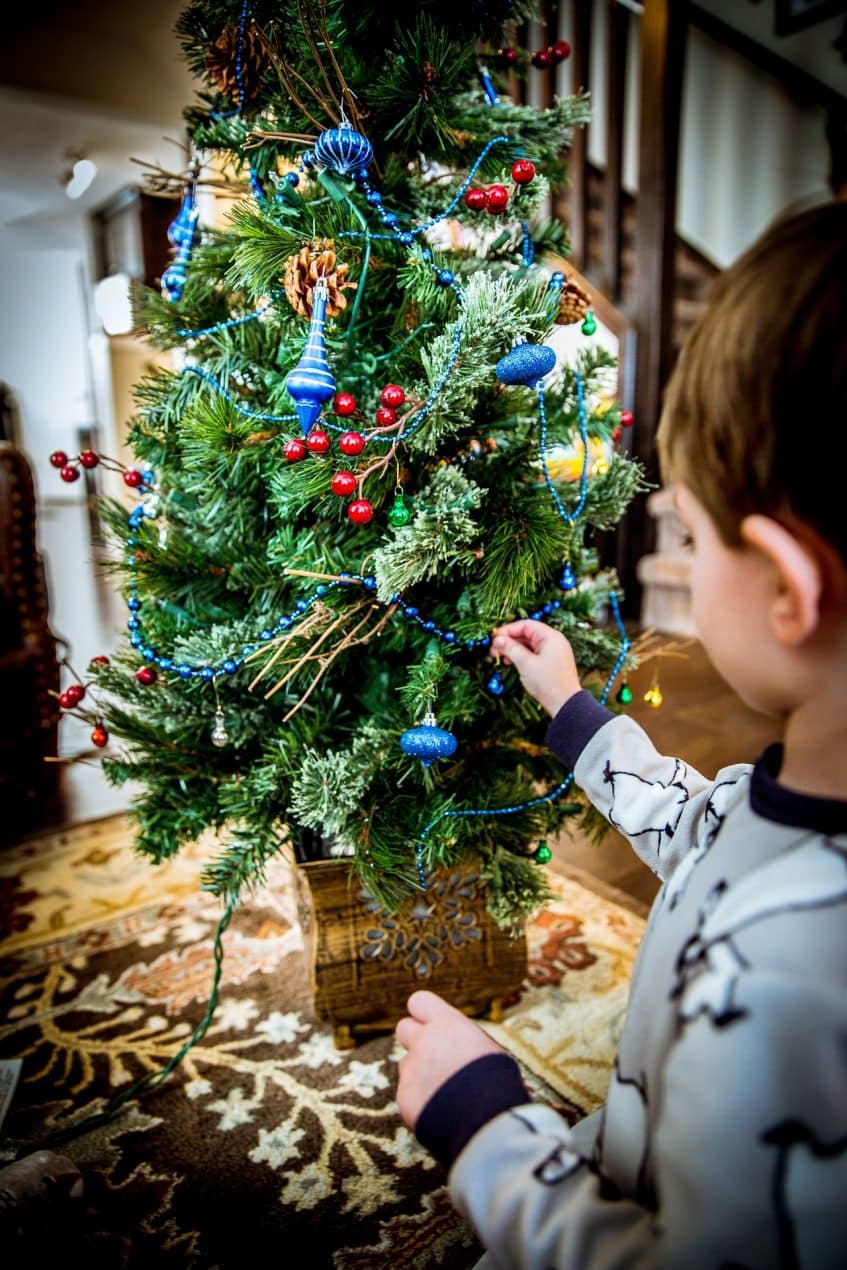
The decorations and the getting together, a time for love and laughter, however for a family with autistic children it can be stressful with the child often becoming confused and distressed. There are many strategies for coping with the increased social activity and change in routine, there are none that will work 100%. The following are 12 tips that may be adapted to suit your particular child(ren).
- Make a schedule
Use a calendar to highlight when Christmas is, when school finishes, when decorations will be put up and taken down. Use the schedule to count down the days to when different things are happening and explain what will happen.
- Be involved with the school
Talk to your school and find out when they will be introducing Christmas topics, use the same words symbols and phrases the school will use.
- Be adaptable
Remember your child may not see Christmas the way that you or others do. It may be frightening or unnerving for them. Don’t put too much pressure on yourself or your child to conform to the usual Christmas rituals. Do what is comfortable for you both and include your child in your activities.
- Don’t overdo it
Think about what you really have to do and what you can do without. Does Christmas have to be throughout the house or can you create Christmas free zones, do you really need that photo with Santa or will a home photo by the tree do? Watch out for possible sensory overload through candles, decorations, lights, food and Christmas crackers.
- Involve your child
Even if this just means being in the room when decorations are put up it may ease the transition. If they need to be actively involved, give them a specific job to do. Try spreading decorating out over a few days, an example maybe put the tree in place for a few days before you decorate it.
- Christmas free zone
Create a room your child can go to and get away from Christmas, to be themselves and escape overload situations. This will also allow you to monitor your child’s anxiety levels and help you to adapt to the needs of your child.
- Remember siblings
Christmas is a time for all the family and time needs to be put aside for your other children, make this time scheduled, maybe when your autistic child can spend time on a lone activity in the Christmas free zone.
- Scheduled shopping
Set the parameters of your shopping before you go, list the shops you are going to in order and try not to deviate from it if possible. Schedule activities into your shopping that your child enjoys. If your child struggles with sensory overload in shops earplugs, personal stereos or dark glasses may help.
- Santa visits
If you decide to do this try to book in advance, contact the shopping centre and talk to them about the issues your child has, most will be willing to accommodate you in some way by giving a scheduled appointment, or seeing you at the start or the end of the day to minimise waiting time.
- Plan your presents
Allow your child to dictate when presents are opened, this could be to a schedule or when they feel ready, maybe when they are on their own or before or after their siblings. If your child doesn’t handle surprises try using a clear wrap for their presents or no wrapping at all. Make sure toys are ready to use, batteries inserted, tags removed, computer games loaded. Give your child some stock phrases to say for response of a present like “thank you for the gift”.
- Manage visitors
Put people visiting on your child’s schedule maybe with a photo so your child recognises them. Ask family and friends to stagger their visits and help you care for the child over the festive period. If your visitors don’t know much about ASD explain it to them in advance of their visit.
- Plan for normal
Schedule the time things will go back to the child’s regular routine, mark on the calendar when the decorations will come down, when the child will return to school etc. Use photos to remind your child what the house usually looks like and set a defined end to the festive period.
While this is not an exhaustive list of coping strategies, with your knowledge of your child’s strengths and weaknesses at least some of these may be adapted to help make the festive period a happy and joyous occasion for your whole family.
This information has been adapted from “A guide to the festive season for parents and caregivers of children with Autism” produced by the National Autistic Society, UK.
This article was first published in Altogether Autism Journal Christmas edition, 2014
- Daniel Smith is an autistic man and has a blended young family including six children diagnosed on the spectrum. He received his diagnosis at the same time as them when he was in his 30s.
- He is a member of the Altogether Autism Advisory Group



